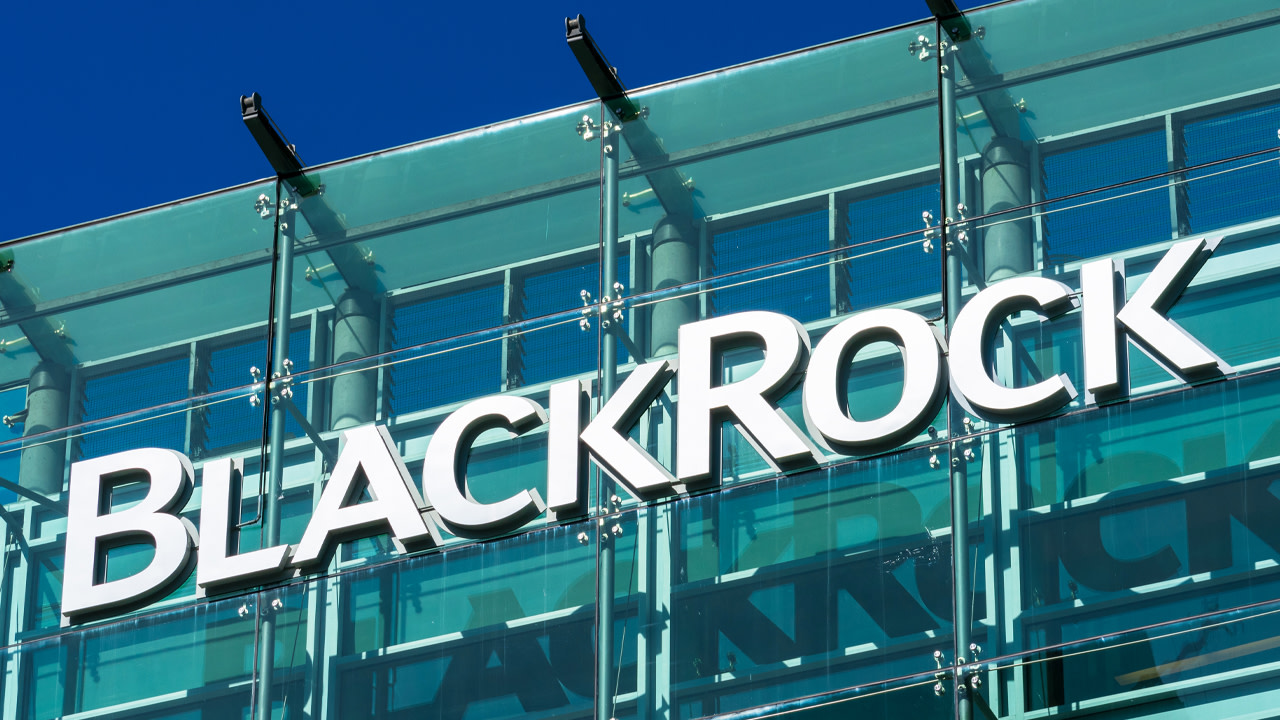ESG Rating and Shareholder Activism: Driving Corporate Responsibility
BlackRock Inc

In recent years, there has been a noticeable increase in shareholder activism aimed at promoting environmental and social goals. This type of activism has gained momentum due to investors' growing awareness that ESG (environmental, social, and governance) factors are crucial for creating value, the trend towards stakeholder capitalism, and increased attention to socioeconomic inequality, which has been amplified by the COVID-19 pandemic. In short, the relation between ESG ratings and shareholder activism is growing deeper.
Shareholder activists focusing on Big Oil have achieved several victories during the proxy season. This highlights how investors are steadily demanding better ESG performance and disclosures from companies. As ESG gains more importance among investors, activists are using ESG concepts and criteria to push for control and strategy changes at companies.
This article explores how ESG can be incorporated into shareholder activism campaigns and offers actionable advice for public companies to take a proactive approach toward addressing ESG-related shareholder activism.
Featured Article: ESG Ratings: A Benchmark For Performance
The Promise of ESG
Investors understand that paying attention to ESG criteria can improve a business's resilience, competitiveness, and financial performance. ESG has been adopted by significant institutional investors and pension funds as a way to promote sustainability and unlock shareholder value, which has added credibility to ESG investing and principles.
Tellingly, investment products with ESG themes have been created by institutional investors, and in 2020 there was a significant increase in capital inflow into ESG-themed funds. Reports have shown that sustainable equity funds performed better than traditional ones, while ESG equity index funds outperformed traditional benchmarks. These positive results have generated more investor interest in ESG and led to greater engagement with public companies.
Reasons for the Integration of ESG in Shareholder Activism
Activist investors incorporate ESG concepts in their campaigns for different reasons. Some view the greater emphasis on environmental and social factors as a means to improve business sustainability and create growth prospects. Others have a contractual obligation to implement ESG into their investment strategy, while some feel a moral responsibility to include ESG concepts in their campaigns.
Activists are aware that institutional investors may have difficulty ignoring ESG-themed campaigns due to pressure from their clients. If they do not prioritise financial and ethical considerations important to their clients, institutions may face criticism. Furthermore, institutions declining to support ESG-oriented improvements may come under public scrutiny.
Relation between ESG Ratings and Shareholder Activism
Identifying ESG Risks
ESG ratings offer essential information for activist shareholders to pinpoint companies with inadequate sustainability practices or high ESG risks. This data empowers shareholders to focus on specific companies, initiate conversations, and propose resolutions to tackle these issues.
Amplifying Shareholder Voices
ESG ratings can be a useful tool for shareholders to make their voices heard. Companies with poor ESG ratings may face more attention and negative impact on their reputation. Shareholders use this information to push for better practices in sustainability, transparency, and ethics.
Related Article: What Is A Good ESG Rating?
Proxy Voting and Resolutions
Proxy voting is a common tactic used by shareholder activists to influence corporate decision-making. To propose resolutions on ESG issues, shareholders rely on ESG ratings for valuable insights. Such resolutions can include urging better carbon footprint reporting or calling for a more diverse board. Shareholders aim to drive change within the company by using their voting power.
Engaging in Dialogue
ESG ratings help shareholders and companies have productive conversations. Activists use reliable data to talk with company management and suggest ways to improve areas of concern. These discussions can result in higher transparency, improved risk management, and increased long-term value.
Encouraging Stakeholder Collaboration
ESG ratings promote cooperation among shareholders and other stakeholders like NGOs, industry groups, and regulators. By exchanging ideas and combining resources, shareholders can increase their influence and push for fundamental changes that have positive effects for the company and the community.
New Themes in Governance Best Practices
Investors who are concerned about ESG issues are creating stricter guidelines and recommendations for how companies should be run. Although governance has always been an important part of shareholder activism, ESG governance is now specifically concentrating on environmental and social concerns. Organisations that evaluate ESG performance evaluate factors such as how well the board is monitoring ESG issues, how responsibility for ESG is shared among board committees, and whether board members have relevant environmental experience.
Companies are under pressure to integrate ESG factors into their strategic decision-making and disclose their ESG-related risks and opportunities. Boards are encouraged to understand their specific duties in overseeing related topics, such as executive compensation, management supervision, and internal controls, to fulfil investors' expectations.
Here’s a great overview of governance issues.
The Surge of ESG Shareholder Activism
Shareholder activism refers to activities performed by shareholders to bring about changes in a publicly traded company. Previously, shareholder activism focused mostly on governance-related issues. However, in the years between 2016 and 2021, the number of campaigns that concentrate on achieving particular environmental and social goals has doubled, making up 20% of all campaigns conducted in this time period.
In recent years, institutional investors have shown a stronger interest in transparency and accountability by endorsing environmental and social proposals. These proposals have received 40% of their voted shares as support during 2021.
Climate Change and Human Capital as Key Campaign Objectives
In recent years, shareholder activism focused on climate change and human capital has seen significant growth in the ESG sector. One instance of this was an effective challenge of ExxonMobil, where they emphasised the connection between climate risk and financial results. Three main trends are responsible for the increase in ESG related shareholder activism.
Investor Recognition of ESG's Value: Investors are beginning to understand that incorporating important ESG factors into a company's plan and procedures can make them more resistant, better positioned against competitors, and financially successful. As a result, investors are firmly convinced that ESG can generate enduring value and increase the stability of corporations and markets.
Shift towards Stakeholder Capitalism: Stakeholder capitalism prioritises creating long-term value for customers, employees, communities, suppliers, and shareholders. This approach expands its focus beyond just shareholders and takes into account social and environmental impacts, leading investors to consider the effects on multiple stakeholders.
Impact of the COVID-19 Pandemic: The COVID-19 pandemic has highlighted how significant social factors, such as managing human capital, providing healthcare access, and promoting diversity, equity, and inclusion, are. Investors now consider social issues to have financial significance, highlighting the need for companies to prioritise responsible practices.
Future Trends in Shareholder Activism and Possibilities Ahead
In the future, shareholder activism that focuses on ESG objectives will be shaped by several key trends. There will be more discussion about geopolitical responsibility during annual general meetings (AGMs) because companies are being closely watched for their human rights practices, supply chain disruptions, and energy security issues. Investors will continue to prioritise climate change and will expect companies to have credible plans to reduce their greenhouse gas emissions. Additionally, investors will remain concerned about social issues like human capital management that were highlighted by the pandemic.
An interesting quick, graphical view on trending ESG views is available here.
Shareholder activists who prioritise ESG issues are expected to bring more innovative ideas. This is because companies will improve their disclosure of information relating to environmental and social concerns. With more disclosure, activists will have more support for their campaigns. The SEC has also indicated its intention to introduce further ESG disclosure requirements, therefore companies will have to focus more on addressing ESG matters.
Current ESG campaigns mainly focus on environmental and climate-related concerns, but future campaigns are expected to also include social and social justice-related issues. Diversity and inclusion are becoming increasingly important, with institutional investors pushing for disclosure of workforce diversity and laws promoting diversity in boardrooms.
Takeaway
Investors are realising the importance of ESG criteria for business resilience and financial performance. As a result, the use of ESG in shareholder activism is becoming more widespread. Activist investors are using ESG principles to advocate for changes in control and strategy at companies.
Companies should prioritise ESG oversight and review their disclosure practices to address ESG-themed shareholder activism proactively. Respectful dialogue with activists and preparedness to respond to ESG criticisms are crucial.
It is important for companies to continually improve their ESG initiatives, oversight, and disclosures. They should be aware of the expectations of reputable ESG data and ratings providers and address any weaknesses in their ESG profiles. To reduce legal risks, they should comply with voluntary disclosure regimes and carefully integrate sustainability reports into regulatory filings.
In the future, shareholder activism driven by ESG factors will likely bring new changes. Companies should expect ESG campaigns to include concepts related to social justice and inclusion, such as promoting diversity. It will be important for public companies to stay proactive and adapt to evolving ESG trends to effectively navigate the changing landscape of shareholder activism.
Companies can reduce the risk of shareholder activism and improve long-term sustainability by adopting ESG principles and taking action to address ESG concerns. ESG is not merely a trendy phrase, but a significant factor in increasing shareholder value and achieving corporate success in today's business environment.
Companies can get ahead by partnering with organisations that offer guidance on how to incorporate ESG factors into their strategies, disclosures, and investor engagement. This collaboration between companies and shareholders, with a focus on integrating ESG considerations, can contribute towards creating a more sustainable and equitable future that benefits everyone involved. Track and compare corporate ESG performance at our Company ESG Profiles listing.






